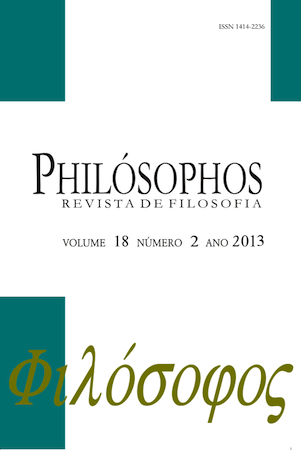NIETZSCHE E RIBOT: MULTIPLICIDADE E FILOSOFIA DA SUBJETIVIDADE
DOI:
https://doi.org/10.5216/phi.v18i2.25073Palavras-chave:
Nietzsche, Psicofisiologia, Ribot, SujeitoResumo
As críticas à concepção de sujeito ou à filosofia da subjetividade são bem nítidas nos textos de Nietzsche. Apesar dessas críticas, podemos perguntar se elas resultam na superação da noção de sujeito ou se significam apenas uma simples mudança nessa concepção, havendo a manutenção dos pressupostos gerais de uma filosofia da subjetividade. Neste artigo, tendo como foco o aspecto da multiplicidade, investigamos se a rejeição da unidade do sujeito é suficiente para rejeitarmos também a filosofia da subjetividade. Mostramos também que as críticas nietzschianas ao sujeito são muito próximas daquelas apresentadas pelo filósofo e psicólogo francês Théodule Ribot em sua luta pela formação de uma psicologia experimental, independente da metafísica.
Downloads
Downloads
Publicado
Como Citar
Edição
Seção
Licença
Autores que publicam nesta revista concordam com os seguintes termos:
- Autores mantêm os direitos autorais e concedem à revista o direito de primeira publicação, sendo o trabalho simultaneamente licenciado sob a Creative Commons Attribution License o que permite o compartilhamento do trabalho com reconhecimento da autoria do trabalho e publicação inicial nesta revista.
- Autores têm autorização para assumir contratos adicionais separadamente, para distribuição não-exclusiva da versão do trabalho publicada nesta revista (ex.: publicar em repositório institucional ou como capítulo de livro), com reconhecimento de autoria e publicação inicial nesta revista.















